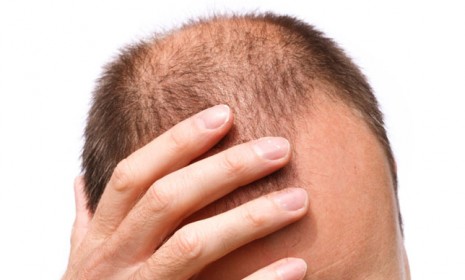Are bald people more likely to get heart disease?
An expansive 35-year study finds a link between hair loss and cardiovascular problems

A free daily email with the biggest news stories of the day – and the best features from TheWeek.com
You are now subscribed
Your newsletter sign-up was successful
The question: It turns out that going bald can harm a lot more than just your ego. Previous studies have demonstrated a link between baldness and an increased risk of heart disease, but this time around, researchers wanted to test if merely looking old correlated with a higher risk of cardiovascular problems. Specifically, they analyzed thousands of subjects for six tell-tale signs of aging: Receding hairlines, bald heads, creases near the ear lobes, fatty deposits near the eyes, gray hair, and face wrinkles.
How it was tested: The research, presented at the American Heart Association's Scientific Sessions in Los Angeles by biochemist Dr. Anne Tybjaerg-Hansen of the University of Denmark, analyzed data on 11,000 people collected over a 35-year period. At the start of the study all participants were age 40 or older.
The outcome: Researchers found that two of the factors — gray hair and wrinkles — didn't have any discernible connection to heart disease. However, people who had "at least three of the other four aging traits had a 57 percent increased risk of heart attack and a 39 percent increased risk for heart disease," says Eryn Brown at the Los Angeles Times, even when other risk factors were accounted for. In other words: If you have some three-part combination of a receding hairline, bald head, creases near the ears, or puffy fat deposits near the eye, it may mean bad news for your heart.
The Week
Escape your echo chamber. Get the facts behind the news, plus analysis from multiple perspectives.

Sign up for The Week's Free Newsletters
From our morning news briefing to a weekly Good News Newsletter, get the best of The Week delivered directly to your inbox.
From our morning news briefing to a weekly Good News Newsletter, get the best of The Week delivered directly to your inbox.
The theory: Hair loss can be linked with lower testosterone levels in the bloodstream, which can affect both men and women. Researchers think that hormone levels, which change as we age, may play a role in heart disease, but at this point it's still speculation.
What the experts say: "Looking old for your age marks poor cardiovascular health," says study leader Tybjaerg-Hansen. For medical professionals, "checking these visible aging signs should be a routine part of every doctor's physical examination," she says. It's true, says Dr. Kathy Magliato, a heart surgeon at St. John's Health Center in Santa Monica, Calif. "We're so rushed to put on a blood pressure cuff or put a stethoscope on the chest" that visible signs of risk are often missed.
A free daily email with the biggest news stories of the day – and the best features from TheWeek.com
-
 How the FCC’s ‘equal time’ rule works
How the FCC’s ‘equal time’ rule worksIn the Spotlight The law is at the heart of the Colbert-CBS conflict
-
 What is the endgame in the DHS shutdown?
What is the endgame in the DHS shutdown?Today’s Big Question Democrats want to rein in ICE’s immigration crackdown
-
 ‘Poor time management isn’t just an inconvenience’
‘Poor time management isn’t just an inconvenience’Instant Opinion Opinion, comment and editorials of the day